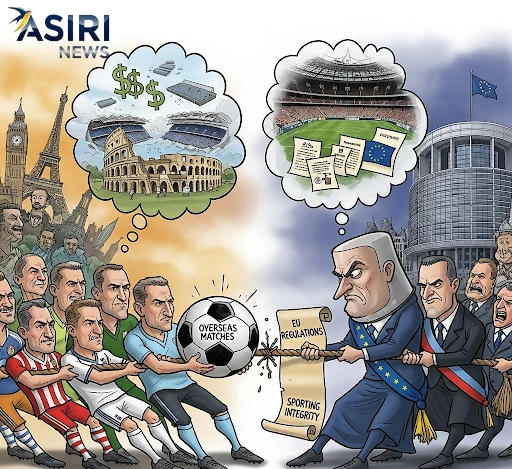A major conflict is brewing at the heart of European football, pitting the financial ambitions of its top leagues against the traditional values of the sport. Italy’s Serie A and Spain’s LaLiga have ignited a fierce debate by defending their controversial plans to host regular-season matches outside of Europe. The proposals, which include a Serie A match between AC Milan and Como in Perth, Australia, in February, and a LaLiga fixture featuring Villarreal and Barcelona in Miami in December, have drawn the ire of the EU Sports Commissioner, Glenn Micallef, who branded the moves a “betrayal” of local fans.

The motivations behind this push are clear: global expansion and revenue growth. With domestic markets nearing saturation, leagues are looking to tap into a massive, untapped audience and monetize the popularity of their biggest clubs and players. By staging a single, high-profile match abroad, they hope to grow their brand, attract new fans, and secure more lucrative international broadcasting and sponsorship deals. This strategy mirrors the American model, where leagues like the NFL and NBA have successfully held regular-season games overseas for years. LaLiga, in particular, has long sought to stage a match in the U.S. to challenge the dominance of the English Premier League in the North American market.
However, the opposition is strong and vocal. EU Sports Commissioner Glenn Micallef has condemned the plans, arguing that they undermine the very essence of the “European sports model,” which is built on the foundation of community-based clubs and loyal, local fanbases. He stated that “European football must stay in Europe,” warning that moving games abroad is not innovation, but a “betrayal” of the supporters who sustain the clubs week in and week out. His stance has been supported by fan groups and even by a players’ union, which has criticized LaLiga for its lack of dialogue with the players who are treated as little more than assets in a business game.
While the Italian and Spanish football federations have approved the proposals, the final decision now rests with European and global governing bodies like UEFA and FIFA, which have yet to grant their approval. This debate is a pivotal moment in modern football governance, forcing a showdown between global commercialization and the preservation of a sport’s cultural identity.



